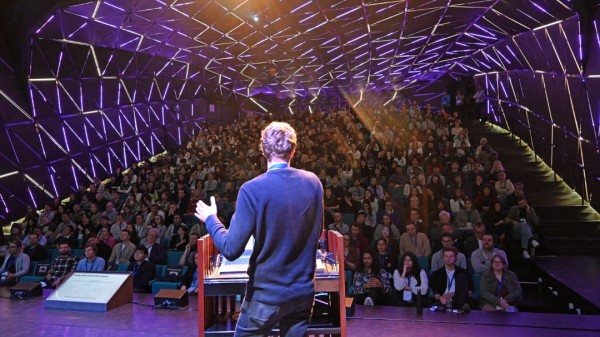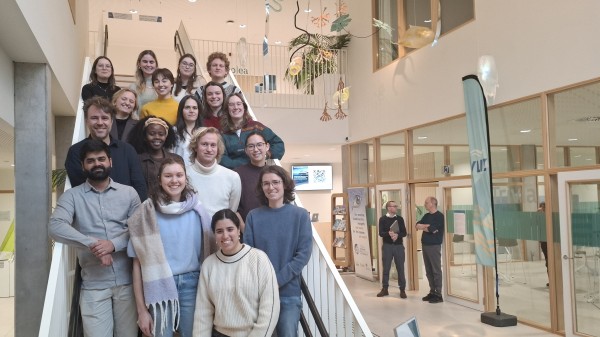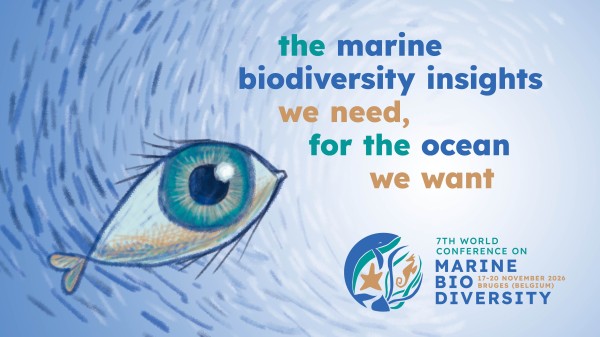Bioplastics* cannot be seen as the ‘holy grail’ for the marine plastic problem after all. The research by Zhiyue Niu, PhD student at Flanders Marine Institute (VLIZ) and UGent, shows that bioplastics also break down into microplastic particles under the influence of UV radiation and wave action, albeit to a lesser extent than the usual petroleum-based plastics. Bioplastics also leak their additives, solvents and monomers into the marine environment. And combined with other stressors, such as warming seawater, negative effects on the population dynamics of marine organisms could be demonstrate by bioplastics. The research by Zhiyue Niu pioneered by assessing the toxicology of bioplastics for the first time. His PhD specifically focused on some new bioplastic applications for maritime use, developed within the Interreg 2 Seas project SeaBioComp.
* Bioplastics are plastics made from natural, renewable raw materials such as starch from corn or potatoes. They are not necessarily biodegradable.
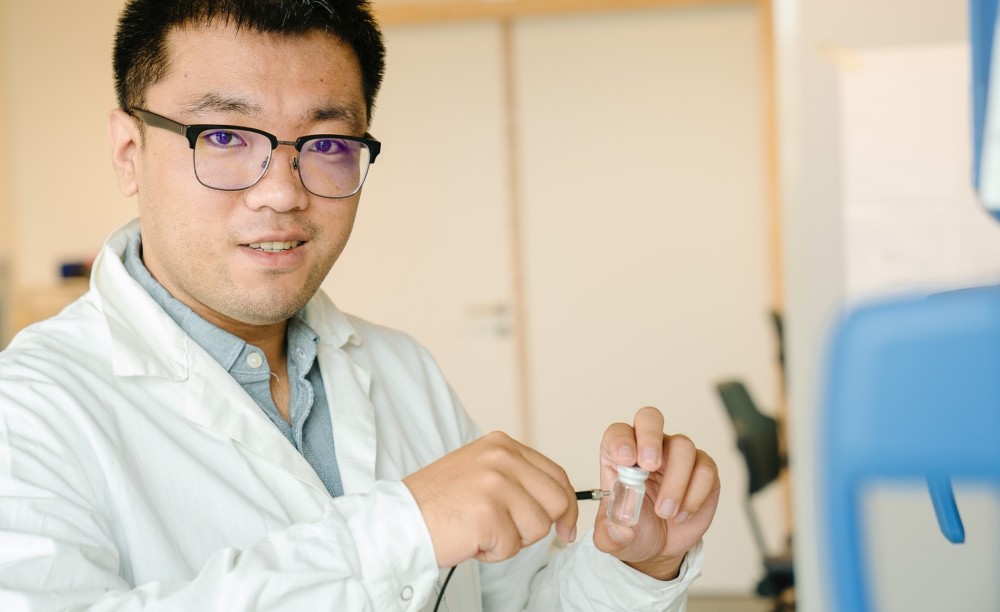
Bio-based plastics are often put forward as a better alternative to petroleum-based plastics. The Interreg 2 Seas project SeaBioComp (2019-2023) took up the challenge, and developed some new bio-based materials for marine and maritime applications. Yet until then, it was not clear whether bioplastics are effectively better for the marine environment.
Zhiyue Niu's research shows that the types of bioplastics developed by the project also fragment into microplastic particles (<5mm), and also secrete plastic-associated chemicals into the water (such as additives, solvents and residual monomers), albeit to a significantly lesser extent than petroleum-based polymers.
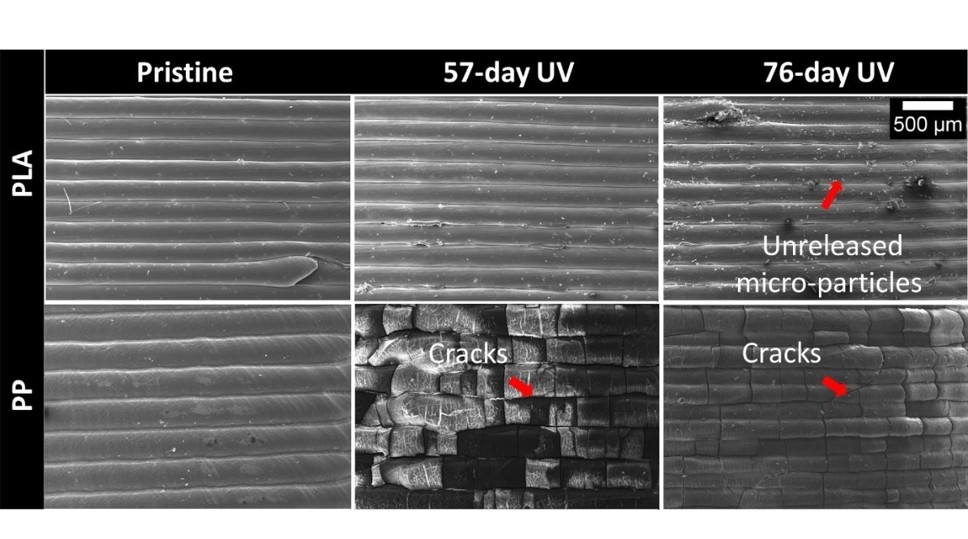
Image taken with an electron microscope of items made from: bio-based polymeric acid PLA (top row) and petroleum-based polypropylene PP (bottom row) that were exposed to UV radiation for 0, 57 and 76 days. Cracks (white) and non-released microparticles (white) are marked on the images with red arrows.
In addition, Zhiyue Niu's thesis also aimed to assess the combined effect of plastic pollution in warming seawater on some key organisms of coastal and marine ecosystems. In an initial test with a marine diatom and a copepod, neither the microplastics nor the leached chemicals appeared to cause an effect at the individual level. But when the plastic microparticles were presented at increased water temperature (cf. realistic warming scenario), both the leached chemicals and the microparticles of the bio-based plastics tested caused adverse effects on some characteristics of the population dynamics of the harpacticoid copepod population (although the effects of the leached chemicals are unlikely to occur in realistic plastic pollution scenarios). Put in a broader context, these observed effects on marine copepods may lead to further changes in their populations, with possible cascading effects on other organisms in the food web and coastal and marine ecosystems.
Replacing petroleum-based plastics with bio-based alternatives is often put forward as part of a possible solution to marine plastic pollution. Yet, this PhD thesis shows that in combination with other anthropogenic stressors (like global warming or ocean acidification) bio-based plastic litter, without optimal waste management, can have adverse effects on the tested copepod populations and potentially lead to complex impacts on the coastal and marine ecosystem.
Zhiyue Niu's PhD research was supervised by Prof Jana Asselman and Prof Colin Janssen of Ghent University, as well as Dr Ana I. Catarino and Prof Gert Everaert of the Flanders Marine Institute (VLIZ). The public defence took place on 17 September at the InnovOcean Campus in Ostend.
Zhiyue Niu (2024). Combined impacts of plastic pollution, from bio-based and petroleum-based polymers, and global warming on the population dynamics of key organisms of coastal and marine ecosystems. VLIZ PhD Theses, 5. Ghent University, Faculty of Bioscience Engineering: Ghent. ISBN 9789464206258. 245 pp. DOI | Download pdf
